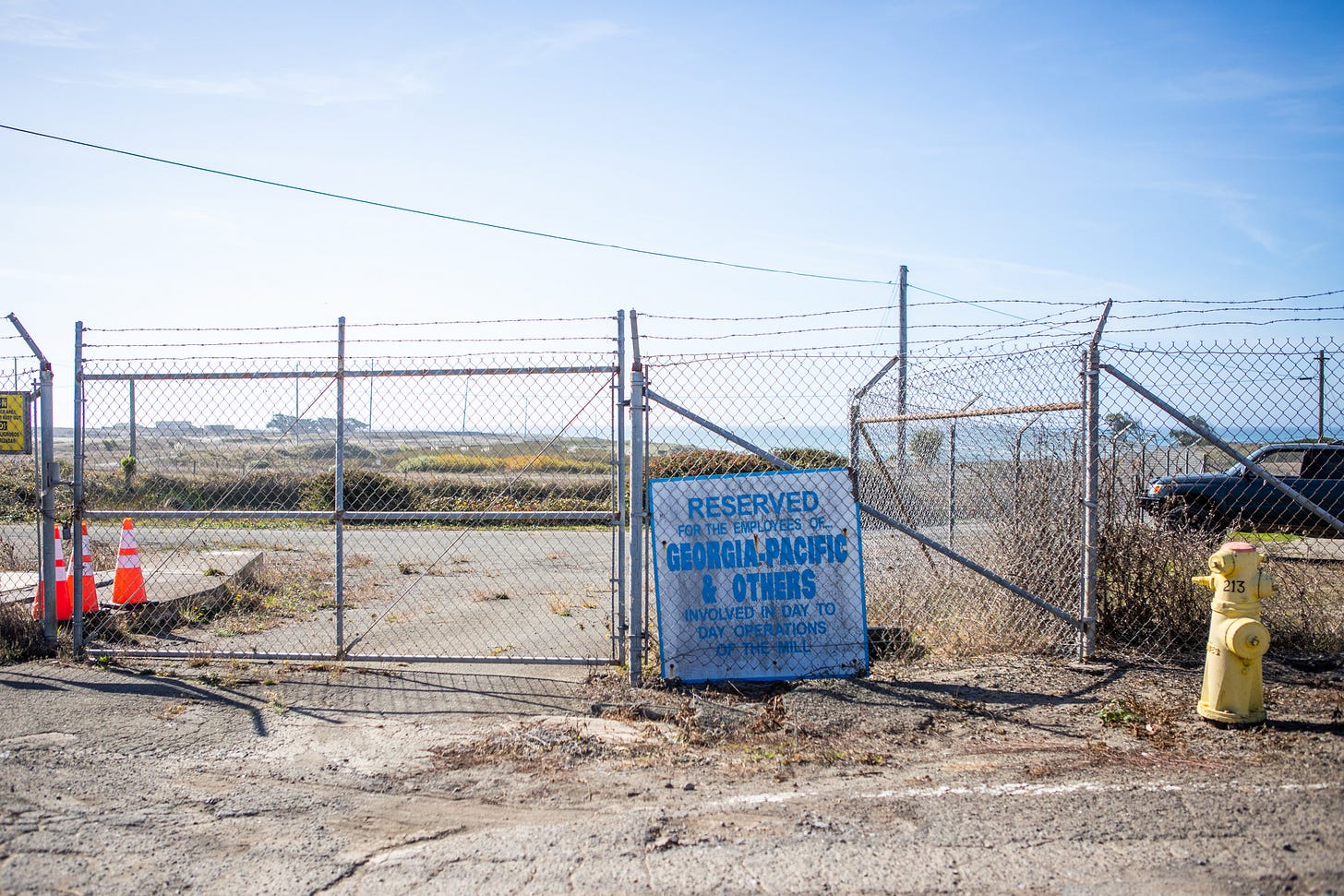‘Mill Town’ explores the complicated legacy of industry and environment
In Mill Town: Reckoning with What Remains, author Kerri Arsenault blends personal memoir with investigative journalism to examine the long-term impact of industrial development on her hometown of Mexico, Maine.
The story centers on a paper mill that supported generations of workers, including Arsenault’s own family, while also contributing to an environmental and public health crisis that still reverberates today.
The paper mill, a major employer in the region, shaped the community’s identity. For many, it represented stability, pride, and the promise of the American working class. But Arsenault’s book raises questions about the cost of that promise.
Through interviews, historical documents, and scientific research, she investigates links between mill operations and elevated rates of cancer and other illnesses among residents.
Much of the book focuses on dioxins and other toxic byproducts associated with paper production, as well as the role of government and corporate actors in regulating these emissions.
Arsenault does not present definitive proof of causation, but she methodically compiles evidence of correlation, drawing attention to patterns that deserve scrutiny.
Mill Town also explores the social dynamics that often accompany environmental harm in small, economically dependent communities. Arsenault highlights how fear of job loss, lack of medical transparency, and institutional complexity can create a culture of silence and complicity.
Residents who suspect something is wrong may hesitate to speak up. Others may feel torn between protecting their health and preserving their way of life.
These themes may resonate with readers in Fort Bragg, where a similar industrial legacy continues to shape public debate.
The former Georgia-Pacific mill site, a 400-plus-acre oceanfront property, has been vacant since the mill closed in 2002. In recent years, the site has become the subject of legal disputes, environmental concerns, and community planning efforts.
In 2021, Mendocino Railway, a private company that operates the Skunk Train, purchased over 270 acres of the former mill site. The company has claimed exemption from local zoning laws under federal railroad regulations, sparking a lawsuit from the City of Fort Bragg.
One of the city’s main concerns is the status of environmental remediation. The land is classified as a brownfield, and some sections contain legacy contamination from decades of industrial use.
Mendocino Railway has stated that it is working with the California Department of Toxic Substances Control on remediation efforts. However, some members of the public have expressed distrust about the process and raised concerns about the lack of transparency.
City officials and some community members have also voiced concerns about oversight and the future use of the land, particularly regarding public access and environmental safety.
These concerns echo the broader issues raised in Mill Town. Arsenault’s work highlights how communities living near industrial sites often face long-term uncertainty not only about physical health risks but also about who is responsible for addressing them.
Her book highlights gaps in accountability and the challenges of navigating legal, corporate, and bureaucratic systems designed to oversee the environment.
Mill Town does not offer simple solutions. Instead, it invites readers to consider the layers of impact that industry can have on communities over time.
Arsenault reflects on what it means to grow up in a place shaped by both economic opportunity and environmental risk. She examines the intergenerational effects of contamination, including how economic dependency can persist long after the industries themselves have ceased.
The book is also a meditation on the loss of health, trust, and certainty. Arsenault explores what remains after a company closes its doors and a town is left to pick up the pieces.
That question is relevant not only in Maine but in many former industrial towns across the country, including Fort Bragg.
As legal proceedings around the Fort Bragg mill site continue and the parties work to resolve their issues, Mill Town offers a case study in how communities grapple with industrial legacies.
It does not claim to speak for all places or all people. However, it raises crucial questions about the balance between economic development and environmental health, the limits of regulatory oversight, and the long-term responsibilities tied to short-term growth.
For readers interested in environmental justice, small-town histories, or the complex relationship between people and place, Mill Town provides a well-researched and deeply personal narrative.
While it focuses on one town in Maine, the issues it raises remain timely and relevant elsewhere.
Originally published in the Fort Bragg Advocate-News on April 17, 2025.



